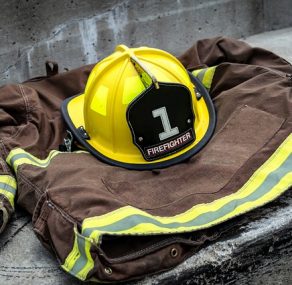Special Category Retirement

Firefighters, police officers, and air traffic controllers are among the few who fall into what is know as the “special category” when it comes time to retirement.
The minimum age of retirement for both police officers and firefighters is 50 years, but only if you have 20 years of job experience in that field. This is on a voluntary basis, and you won’t be forced into retirement from these industries until the age of 57.
Retirement benefits work a little different for people who fall into the special category when it comes to federal retirement, you’ll be able to collect more through your employer as well as more through the system, and the traditional formulas used to figure out what you’ll be able to collect is not the same as what other federal workers use. To figure out the amount you can collect with special category retirement, you take your highest 3 years of pay and average them out, then take 2.5 percent of that amount and times it by however many years you put into the service, traditionally, for a career, that would be 20 years or more. From there you take an additional 2 percent of that 3 year average as well. You will not be penalized for retiring earlier than allowed under typical CSRS conditions.
Now, there is also the FERS annuity you will be able to collect, and that one is figure by taking the highest earning 3 year average, taking 1.7 percent of that, and times it again by your years of service up to 20, with 1 percent per year for every year over 20.
For your retirement under FERS and CSRS you will afforded a yearly adjustment for cost of living, and will most likely be eligible for the Special Retirement Supplement, which is a check that comes for the qualifying federal employees who retire but aren’t at the age that they’ll be able to start collecting Social Security. The Special Retirement Supplement is there to replace that amount.
For air traffic controllers, you have an additional set of circumstances surrounding your profession and retirement from it. Generally, you must retire from this line of work on the last day of your birthday month when you turn 56 years old.
25 years of service it takes for an air traffic control to qualify for special retirement, or if you have 20 years behind you, you can opt to retire at age 50. The main difference that air traffic controllers get extra that other CSRS retiring workers don’t has to do with their annuity, which is guaranteed to be higher than half of their highest 3 years of average pay. They also are exempt from any age based reductions when it comes to annuities.
And as for FERS with air traffic controllers, they have their benefits figured out in the say way as the police officers and firefighters that we’ve talked about a few paragraphs back: take the average of your highest three years of pay, figure out 1.7 percent of that, and then multiply it by the years of service up to 20, with an additional 1 percent for any years worked over that. And like the other two professions listed above, air traffic controllers will also be exempt from any annuity reductions based off of the age they retire at.






